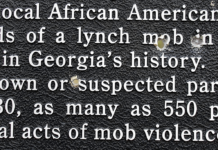I posted a New York Times article on Facebook yesterday that said Black people still face redlining in housing due to longstanding bank lending practices.
My friend Derrell Bradford responded by saying “Yeah….but….neighborhood schools……”
Allow me to break the first rule of comedy. I’m going to explain his joke.
In eduworld, we constantly hear about the impacts of segregation and poverty on schools. Charter schools are said to be worsening segregation because they often serve black and brown students in high poverty neighborhoods.
But, here’s the funny part: the same people who make that charge seem to be more significant contributors to segregation than charter schools.
First, let’s start with the fact that many of them live segregated professional lives. Some send their children to the least integrated schools in their city (Hello Myron Orfield). Others are the proud products of segregated – albeit, all-white – private schools (Hello Professor Julian Vasquez Heilig and Yohuru Williams). And, a rare bunch choose segregated – yes, black – schools for their children (Hello Ms. Hannah Jones).
The funniest comedy is about incongruent things, which makes these bawdy anti-school reformers successful comedians.
Second, the antidote to segregation that they prescribe is one unlikely to cure the disease. They preach about the nobility of neighborhood schools (now rebranded as “community schools“) but ignore how tying school enrollment to segregated housing patterns continues the problem.
For educated people to do that is quite funny.
How about the trope signaling a need for “democracy in education” while the push for elected school boards is far from democratic?
Almost nobody votes for the people who supposedly represent the public’s interests. Look at their political endorsements and campaign workers, and often you’ll find public workers hiring their bosses.
That’s racketeering, not democracy. Again, incongruent things make for great comedy.
But wait, there are more jokes.
The one about how we should value teachers and public education more, but we should acknowledge that teachers and public education can’t make much of a difference if students are black, poor, and have parents who are black and poor.
And…
The one about how standardized testing doesn’t tell us anything of value, except, of course, when it tells us something we want to hear.
When education establishmentarians like Diane Ravitch and her nation of Ravitchians say “charter schools do no better than public schools, and often they do worse,” they’re basing their assessment on the same standardized, summative assessments that they criticize.
Here’s another good one: the Ravitchian paleopedagogues say those of us who commit ourselves to new schools and alternative education systems are merely profiteers and disaster capitalists who want to tap America’s $600 billion education budget.
That’s funny because nobody talks about money more than career educrats themselves.
The unions, principals, teachers, superintendents, and virtually everyone drawing a check from the half-trillion-dollar-education-trough can’t get enough of money talk.
On the other side, the supposedly petty education capitalists obsess mostly about schools, schooling, achievement, outcomes, student trajectory, college, teaching, learning, scope and sequence, content, pathways, pipelines, research, data – you get the picture.
The fact that Mr. Money Bags thinks mostly about education, while Ms. Save O. Schools thinks mostly about money, now that’s comedic genius.
Then there is the thing about school reformers being a motley crew of racists and cultural tourists.
My experiences tell me that one is super hilarious. When I was on a school board we attempted to negotiate a rule that teachers taking a job in our lowest performing schools would have to give the school at least a two-year commitment so we could stem the effects of churn. The union balked. In fact, their head comedian told us it’s a rite of passage for teachers to “shop for better schools and better students as they gain seniority.”
Talk about “teach for a while.” Knee-slapping funny stuff, huh?
Adding to the same problem, guess who is against rules that require teachers to live in the city where they teach?
Yep, teachers and the comedy syndicates that collect their dues.
When I FOIA’d the home zip codes of Minneapolis Public Schools teachers I found that the majority of them were driving in from the suburbs and exurbs every day to draw a paycheck that would quickly leave the city limits with them on paydays.
But reformers are a bunch of outsiders attempting to profit from local public schools, right?
That makes me LOL.
The next joke is complicated, so stick with me.
The set up says that when a State grants a charter to a nonprofit organization to operate public schools for the benefit of students who States and cities have a hard time reaching and teaching, that is called “privatization.”
It takes money out of the hands of “the public” and puts public dollars into the hands of people who are not accountable to “the public.”
The previous jokes are of the Andrew Dice Clay model (set up + punchline). The privatization joke is closer to the Steven Wright variety (“Last night somebody broke into my apartment and replaced everything with exact duplicates… When I pointed it out to my roommate, he said, “Do I know you?”).
It’s funny because at its root it assumes something absurd to be true. Are schools governed by districts and school boards demonstrably more accountable to “the public”?
I could bury you in examples of district schools who do 90% of their work outside of public view on purpose, knowing if the public knew half of what really goes down in school districts we would have already converted to an entirely different system.
Finally, one of my favorite jokes is that public school teachers have no voice in education.
I point it out all the time that you can’t visit any Statehouse in the United States and not trip over several teacher union policy assassins who smile a smug grin as newby legislators introduce school reform policies or school accountability provisions. They smile because they know those policies and regulations will disappear in the middle of the night and a forensic scientist won’t be able to tell you where they went.
When you look at the “Nation’s Report Card” on education performance that came out last week, and you see numbers that warn us that the future of racial and social justice is dire, the only comedy that seems appropriate is that of Richard Pryor. We need his brand of searing social commentary that makes us laugh because if we don’t, we might cry ourselves into a dark, nihilistic corner.
It’s sad to say, but when it comes to the comedy of America’s massive education payroll, the joke is clearly on us.
That shit ain’t funny.










